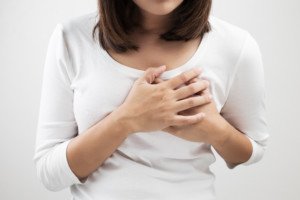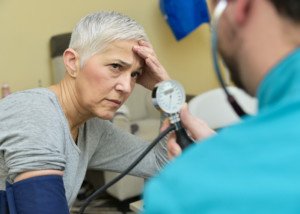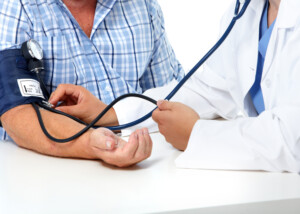
When the heartbeat does what you’d describe as flutters, these are “usually called palpitations, which represent an awareness of our heartbeat (it may be described as an irregular beat, a forceful beat, or a rapid beat),” says Teresa Caulin-Glaser, MD, a cardiologist and senior vice president with Service Lines, OhioHealth.
A fluttering heartbeat can be frightening, even if you’re young and athletic, but especially when you’re not so young anymore and not in the best shape.
Dr. Caulin-Glaser continues: “There are multiple causes of palpitations (arrhythmias, structural heart problems, medications, recreational drug use, caffeine, stress, metabolic disorders).”
If your fluttering heartbeat is being caused by anxiety or stress, worrying about this issue will likely exacerbate the fluttering, but this won’t cause any damage.
You’ll find that during periods when you realize your heart was not fluttering, you were calm, cool and collected, and the issue was the furthest thing from your mind.
Exercise is a great way to subdue general anxiety.

Freepik.com, prostooleh
Dr. Caulin-Glaser explains: “Most often palpitations are not a concern and are a result of premature heartbeats.
“The heart feels like it is flip-flopping in the chest, sometimes with a sensation that it has paused.
“This sensation is the result of the premature beat causing a brief pause in the heart rhythm.
“If the symptoms are frequent, increasing in duration, associated with symptoms, they should be evaluated.
“This would initially involve a very careful history, physical exam, 12-lead ECG, labs and ambulatory monitoring of the rhythm.”
If your fluttering heart is accompanied by symptoms such as feeling like you’re about to pass out, lightheadedness or chest pain, you should schedule an appointment with a cardiologist.
It would also be a smart idea to keep a log of your heart fluttering episodes.
This way you can determine if there is any pattern, such as the problem occurs only when you are experiencing substantial anxiety; during or shortly after physical exertion; or whenever you take a certain drug, such as diet pills, cold and cough medications, amphetamines and cocaine.

Dr. Caulin-Glaser is an experienced physician, teacher and researcher in the specialty of cardiovascular disease, and formerly the system vice president for Heart & Vascular Services at OhioHealth.
 Lorra Garrick has been covering medical, fitness and cybersecurity topics for many years, having written thousands of articles for print magazines and websites, including as a ghostwriter. She’s also a former ACE-certified personal trainer.
Lorra Garrick has been covering medical, fitness and cybersecurity topics for many years, having written thousands of articles for print magazines and websites, including as a ghostwriter. She’s also a former ACE-certified personal trainer.
.









































